Off the coast of South Korea, a community of ageing women spend their days free diving from the black shores of Jeju Island in search of ocean delicacies. In thin rubber suits and old-fashioned masks, the renowned haenyeo — or “women of the sea” — dive for up to six hours a day, and hold their breath for up to two minutes at a time.
The haenyeo craft — the subject of Alain Schroeder’s winning Portrait of Humanity 2020 series, Grandma Divers — is a centuries-old profession and, today, a culturally-treasured way of life. It depends upon a deep knowledge of, and respect for, marine life: the women dive without oxygen tanks and prevent harvests at certain times to safeguard against overfishing and preserve the region’s ecology. Reportedly, they never allow the harvesting of young fish or shellfish.
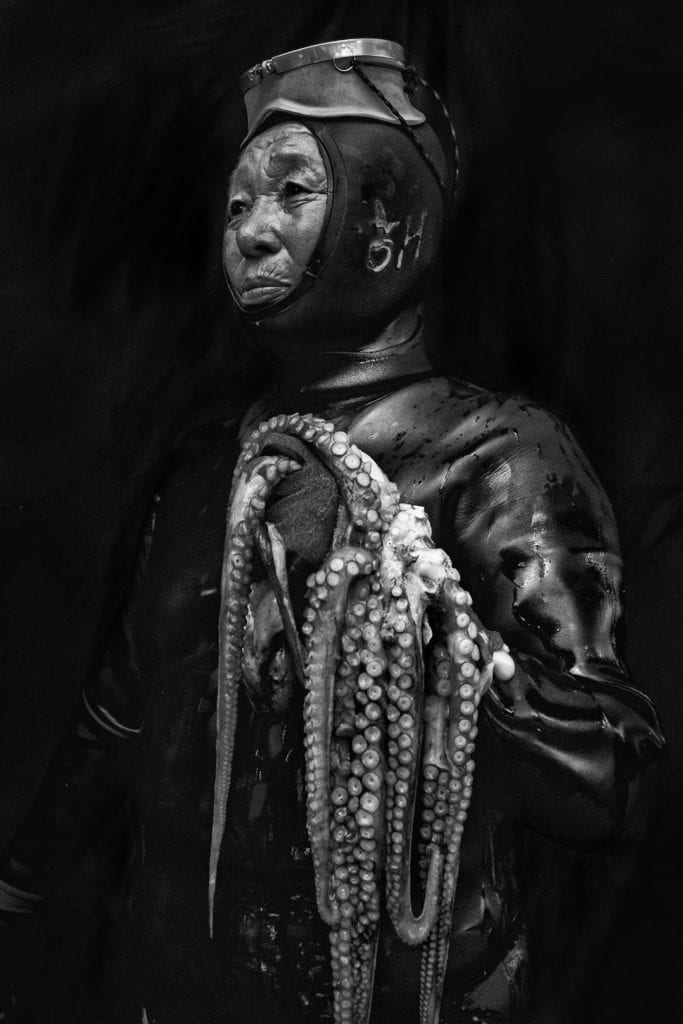
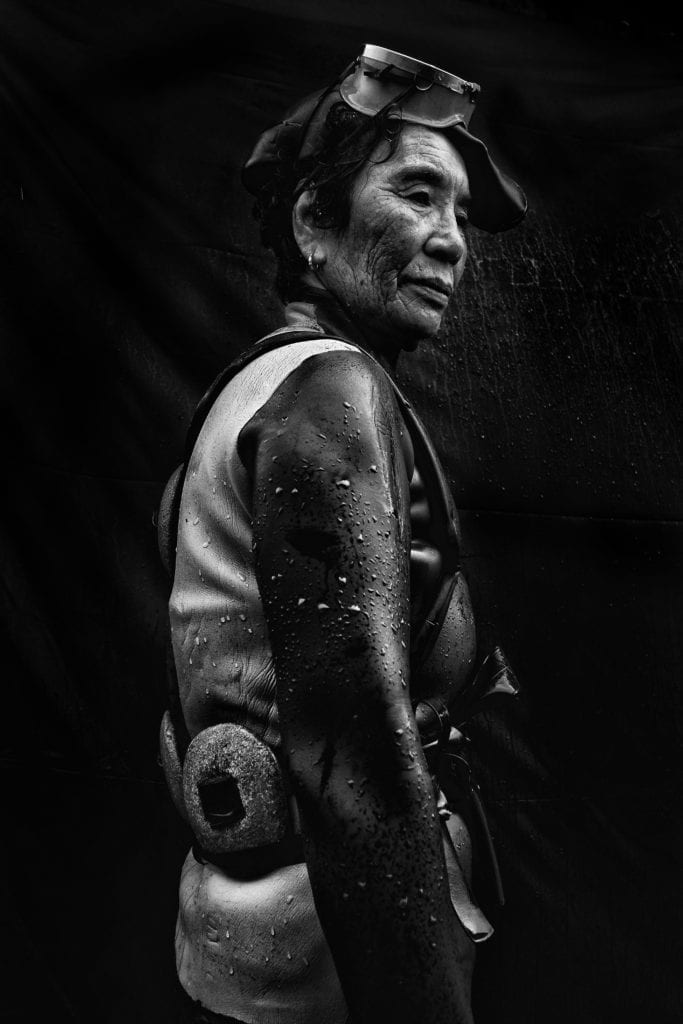
Having sold his shares in a successful Belgian photo agency in 2012, the Portrait of Humanity winner exists as a perpetual traveller; with no home and just a suitcase of belongings, he moves from country to country, researching as he goes. “On Jeju, I saw one woman coming out of the water, and she took off her mask, and then her hood,” he recalls. “The equipment is tight, it doesn’t come off easily. She made this face as she did it, totally distorted. The second she did that, I knew I needed to make a series of portraits.”
Shot against black backdrops, staged wherever the haenyeo happened to be exiting the water, the result is a striking series of images: some solemn, even heroic; others lively and animated. Schroeder’s subjects are proud and deliberate as they go about their business, removing their suits, presenting their catches, shaking themselves off.
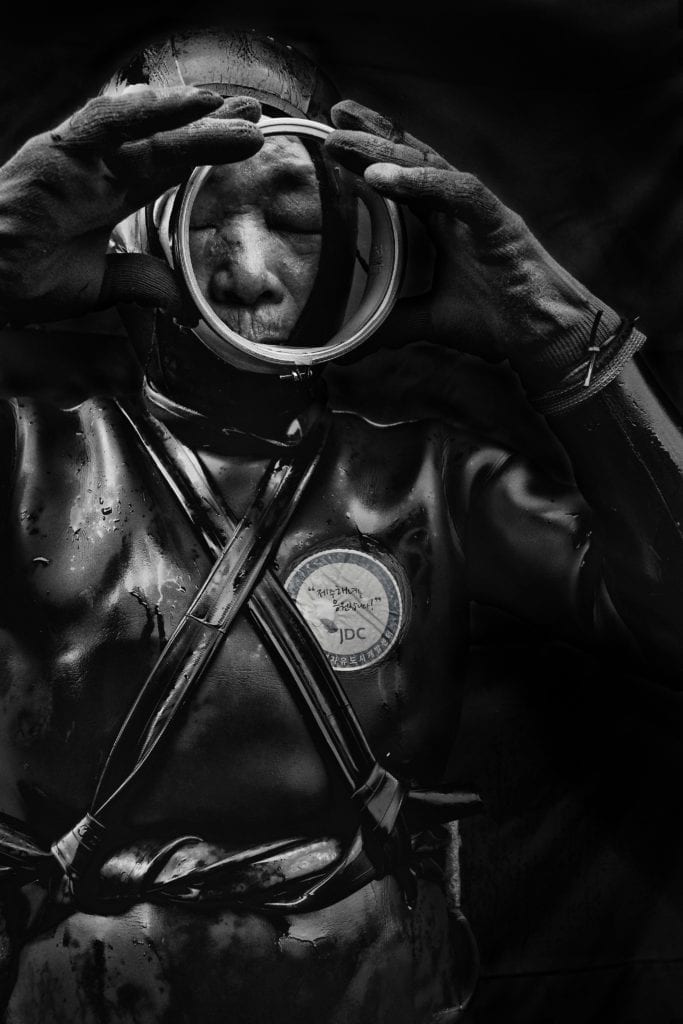
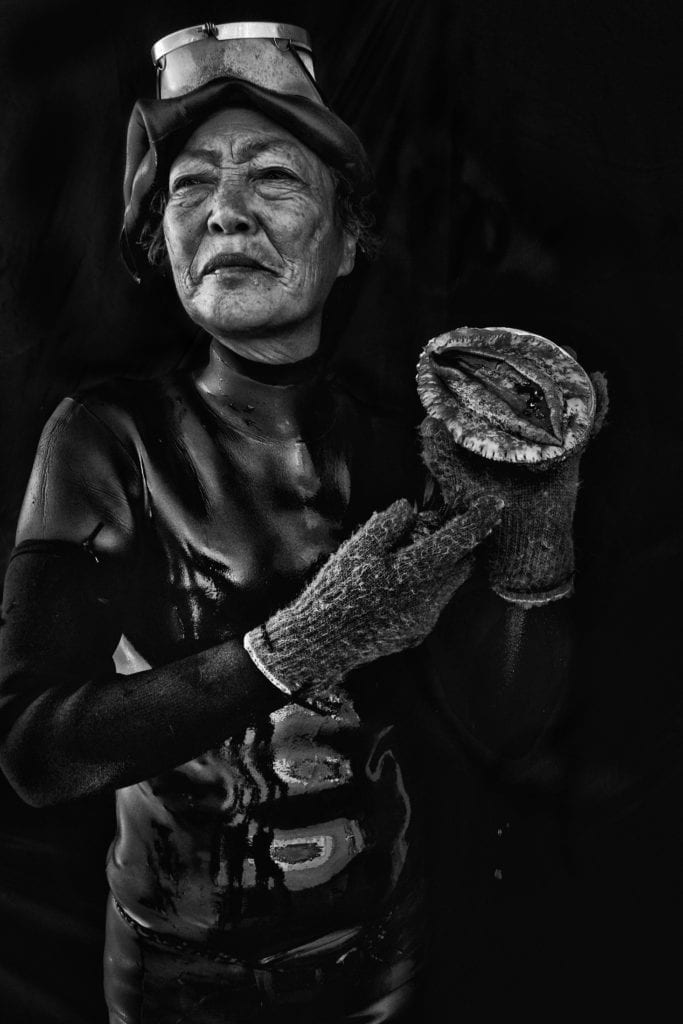
Historically, the occupation is passed on early from mother to daughter, but numerous experts agree this may be the last generation of women to practice it. “It’s extremely hazardous,” Schroeder explains. “Haenyeo women regularly suffer from decompression illness, blackouts and hypothermia.” Some dives have even proved fatal.
Nonetheless, as the women’s numbers have waned, fascination around them has burgeoned. In 2015, the Jeju government spent the equivalent of $6.5m on measures to help preserve the haenyeo, and they were subsequently added to the the UNESCO list of Intangible Cultural Heritage. As Schroeder observes: “The haenyeo of South Korea may be the last modern heroines whose story must be told.”
alainschroeder.myportfolio.com
Grandma Divers is exhibiting as part of the Portrait of Humanity 2020 Global Tour, on show at Capa Center, Budapest, until 11 October and Indian Photo Festival, Hyderabad, between 12 November and 13 December 2020.
Enter Portrait of Humanity 2021 (Deadline 22 October 2020 – 23:59 UK Time)
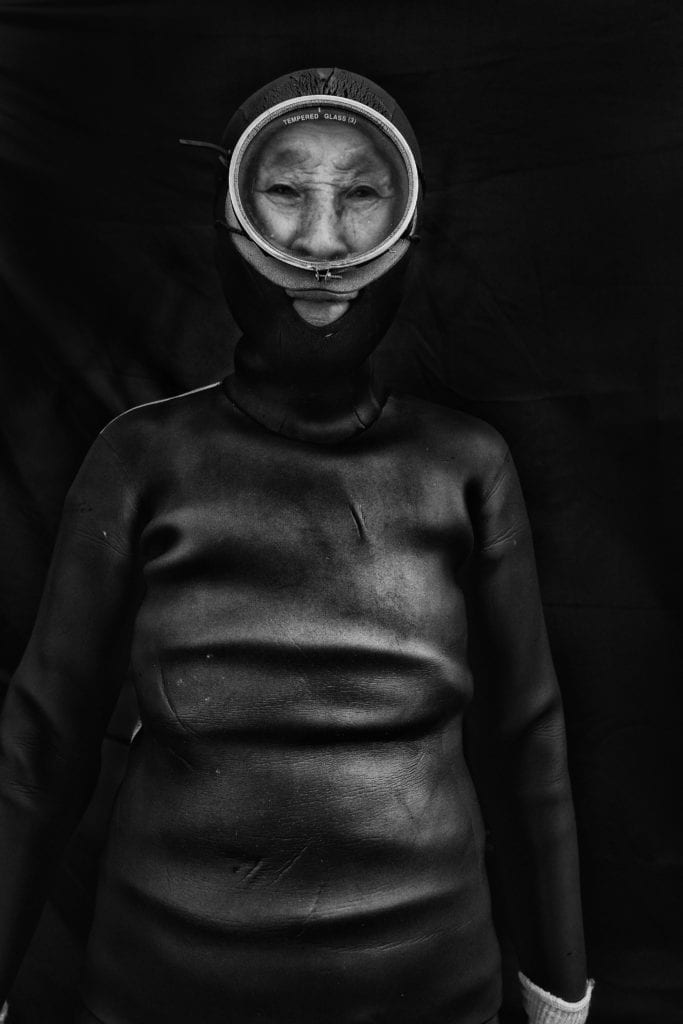
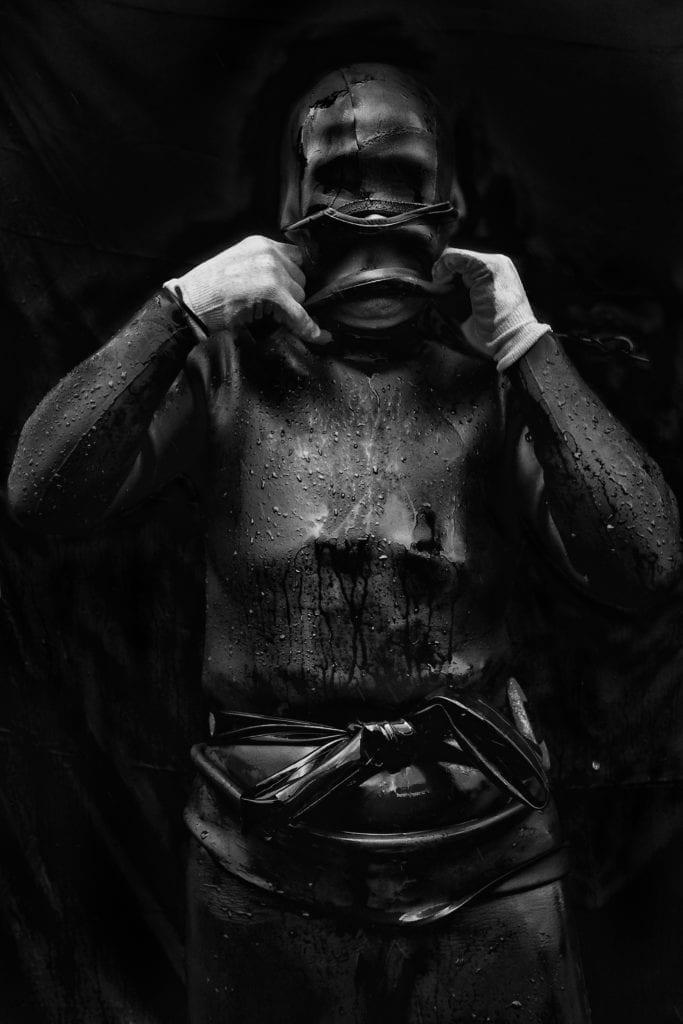
©Alain Schroeder 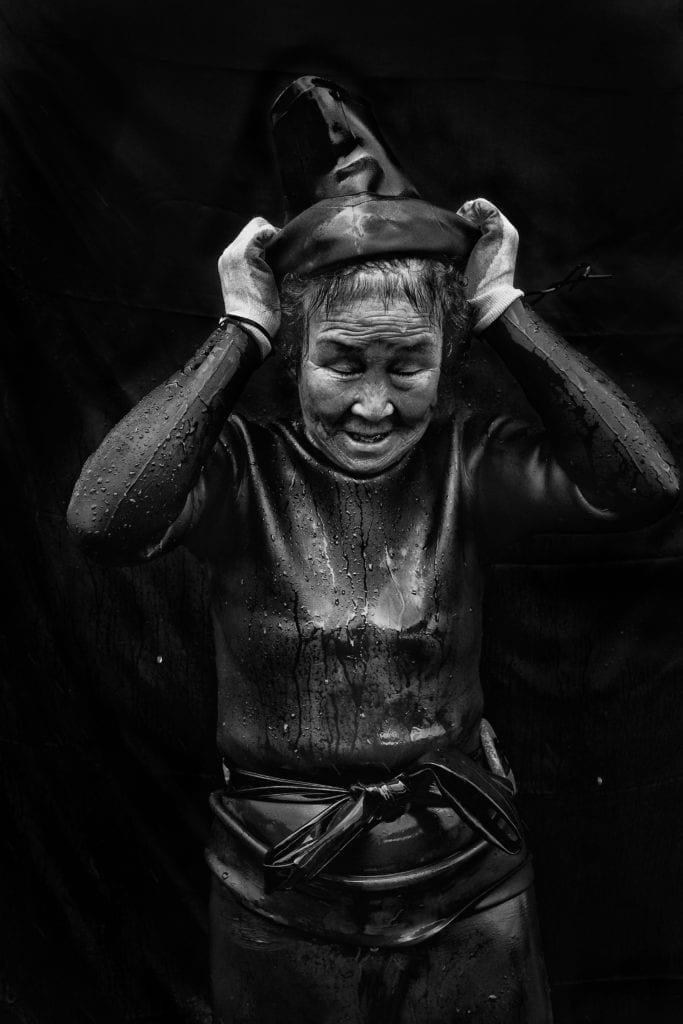
©Alain Schroeder 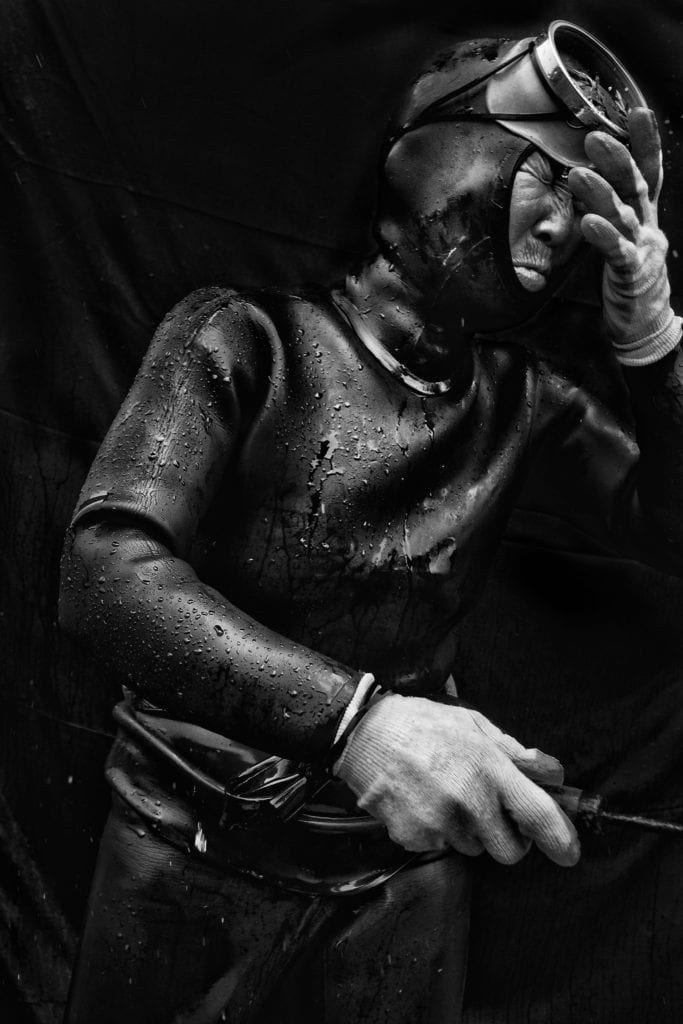
©Alain Schroeder 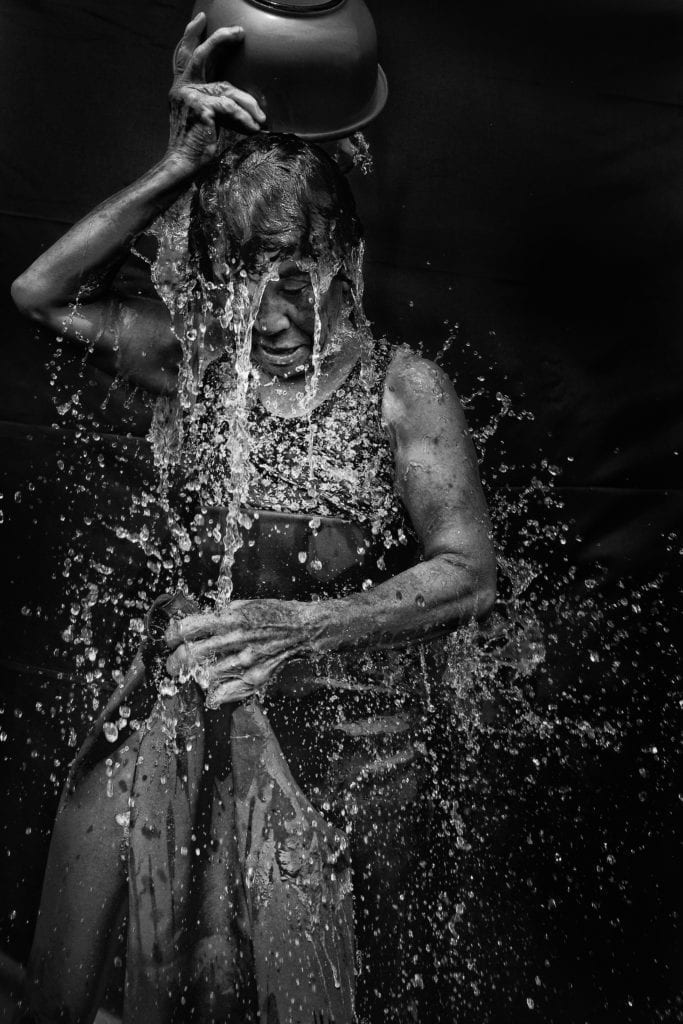
©Alain Schroeder
